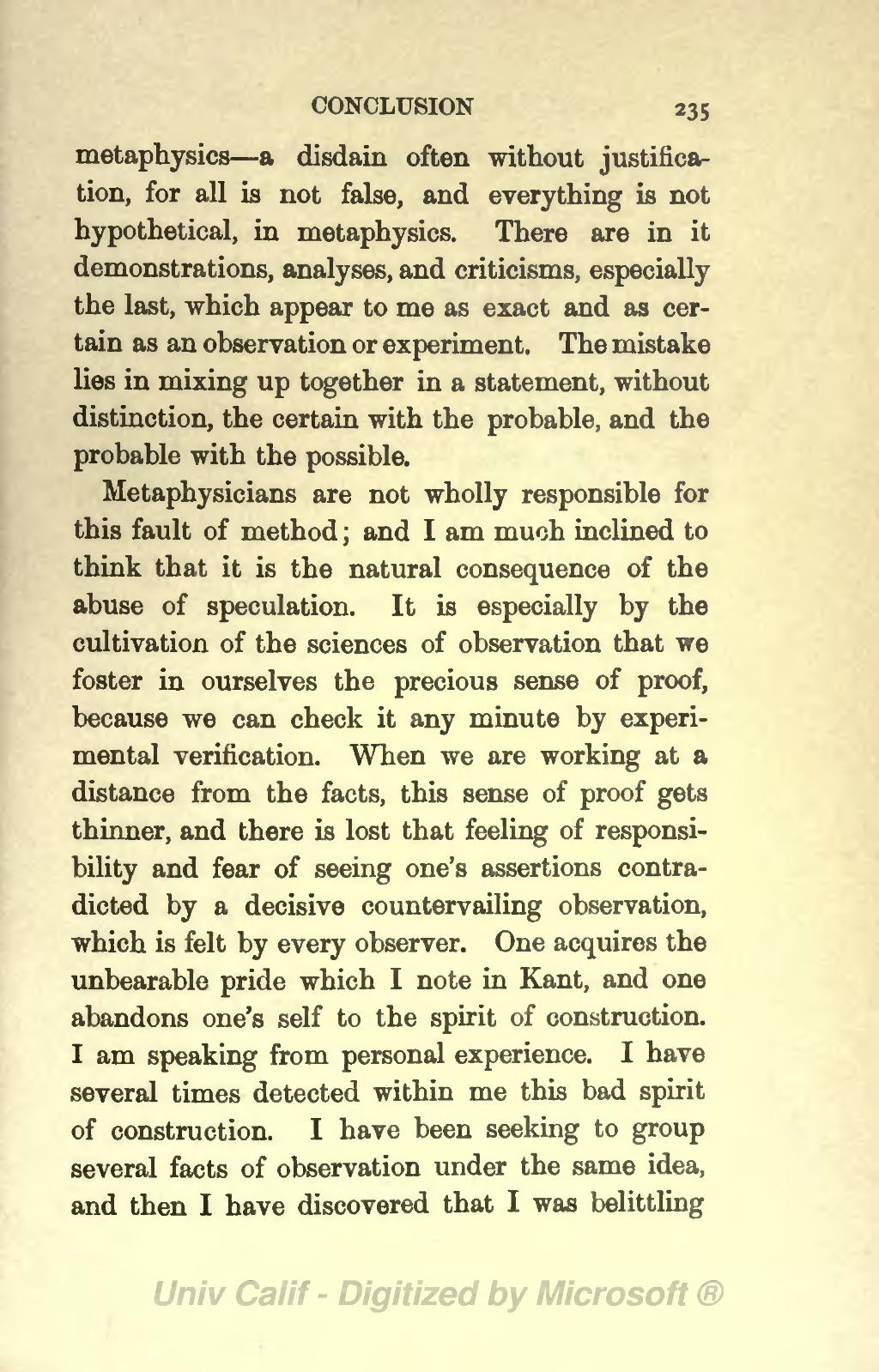metaphysics—a disdain often without justification, for all is not false, and everything is not hypothetical, in metaphysics. There are in it demonstrations, analyses, and criticisms, especially the last, which appear to me as exact and as certain as an observation or experiment. The mistake lies in mixing up together in a statement, without distinction, the certain with the probable, and the probable with the possible.
Metaphysicians are not wholly responsible for this fault of method; and I am much inclined to think that it is the natural consequence of the abuse of speculation. It is especially by the cultivation of the sciences of observation that we foster in ourselves the precious sense of proof, because we can check it any minute by experimental verification. When we are working at a distance from the facts, this sense of proof gets thinner, and there is lost that feeling of responsibility and fear of seeing one’s assertions contradicted by a decisive countervailing observation, which is felt by every observer. One acquires the unbearable pride which I note in Kant, and one abandons one’s self to the spirit of construction. I am speaking from personal experience. I have several times detected within me this bad spirit of construction. I have been seeking to group several facts of observation under the same idea, and then I have discovered that I was belittling
